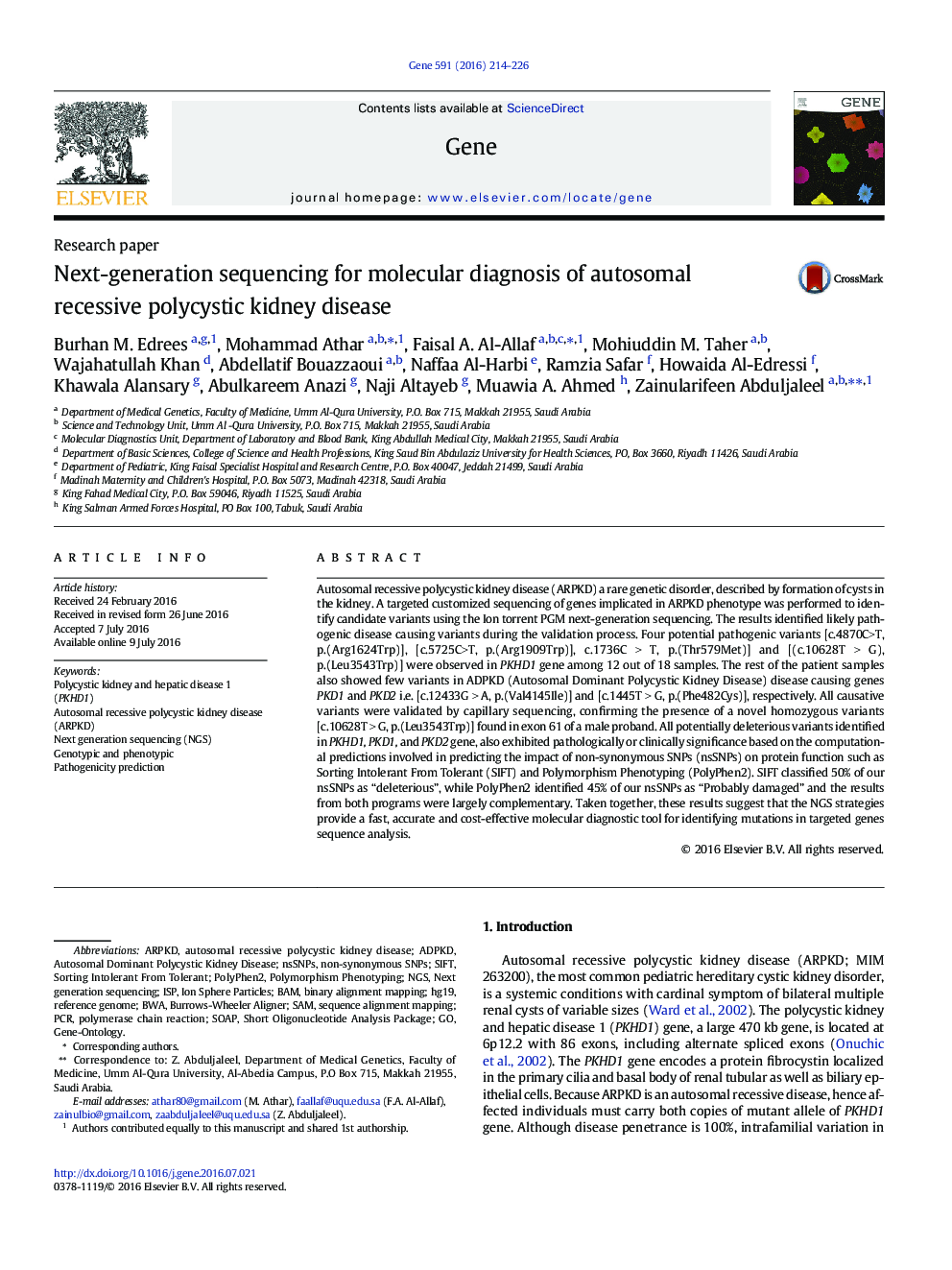| کد مقاله | کد نشریه | سال انتشار | مقاله انگلیسی | نسخه تمام متن |
|---|---|---|---|---|
| 2814836 | 1159831 | 2016 | 13 صفحه PDF | دانلود رایگان |
• We performed the targeted customized sequencing of genes implicated in ARPKD.
• Identify candidate novel and common variants using the next-generation sequencing.
• The results detected highly pathogenic variants during the validation process.
• The variant found in PKHD1 gene was a novel homozygous derived from a male proband.
• This strategy are lower cost and less time consuming for simultaneous PKHD1 sequence.
Autosomal recessive polycystic kidney disease (ARPKD) a rare genetic disorder, described by formation of cysts in the kidney. A targeted customized sequencing of genes implicated in ARPKD phenotype was performed to identify candidate variants using the Ion torrent PGM next-generation sequencing. The results identified likely pathogenic disease causing variants during the validation process. Four potential pathogenic variants [c.4870C>T, p.(Arg1624Trp)], [c.5725C>T, p.(Arg1909Trp)], c.1736C > T, p.(Thr579Met)] and [(c.10628T > G), p.(Leu3543Trp)] were observed in PKHD1 gene among 12 out of 18 samples. The rest of the patient samples also showed few variants in ADPKD (Autosomal Dominant Polycystic Kidney Disease) disease causing genes PKD1 and PKD2 i.e. [c.12433G > A, p.(Val4145Ile)] and [c.1445T > G, p.(Phe482Cys)], respectively. All causative variants were validated by capillary sequencing, confirming the presence of a novel homozygous variants [c.10628T > G, p.(Leu3543Trp)] found in exon 61 of a male proband. All potentially deleterious variants identified in PKHD1, PKD1, and PKD2 gene, also exhibited pathologically or clinically significance based on the computational predictions involved in predicting the impact of non-synonymous SNPs (nsSNPs) on protein function such as Sorting Intolerant From Tolerant (SIFT) and Polymorphism Phenotyping (PolyPhen2). SIFT classified 50% of our nsSNPs as “deleterious”, while PolyPhen2 identified 45% of our nsSNPs as “Probably damaged” and the results from both programs were largely complementary. Taken together, these results suggest that the NGS strategies provide a fast, accurate and cost-effective molecular diagnostic tool for identifying mutations in targeted genes sequence analysis.
Journal: Gene - Volume 591, Issue 1, 10 October 2016, Pages 214–226
